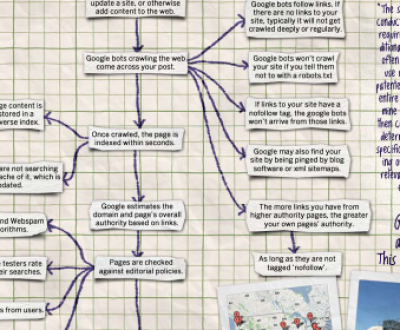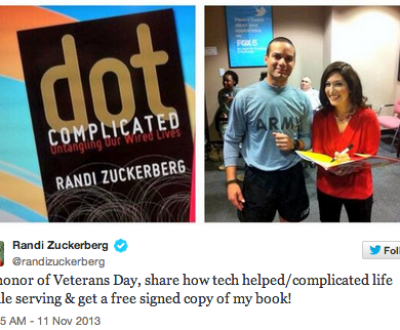I read a great article on Forbes.com recently called “Should You Outsource Social Media Or Do It Yourself?” The article has some great general points like determining the primary goals and objectives of social media campaigns, not spreading social too thin, and splitting social media efforts between in-house staff and an outsourced consultant.
 While I agree with many of the points outlined in the article, I would be cautious with one piece of advice in particular that the article suggests: “Once you’ve decided which social networks best suit your goals, you can decide whether to handle them yourself. Look around your office. Do you have some employee who likes to spend half his day at Facebook? (Most offices do.) You can turn that to your advantage.”
While I agree with many of the points outlined in the article, I would be cautious with one piece of advice in particular that the article suggests: “Once you’ve decided which social networks best suit your goals, you can decide whether to handle them yourself. Look around your office. Do you have some employee who likes to spend half his day at Facebook? (Most offices do.) You can turn that to your advantage.”
My issue here is that time spent on social media is clearly suggested as the primary qualifier for determining who in the office should run the company’s social media efforts. Why do I think that strategy is flawed?
First of all, if an employee whose current job has nothing to do with Facebook is on Facebook half of the day, that may be a problem in and of itself. Is he posting selfies and trolling former high school friends, or is he engaging in useful conversations with your customers and stakeholders? Time spent doesn’t tell us the whole story.
Also, remember that the person you choose from within to handle your social media efforts will represent the public face of your company to many people. Knowledge of the channel or technology, although necessary, represents only a small portion of the skill set required to take on such a mantle. When I’m looking around the office, I would rather identify the person who is engaging with customers daily, building brand loyalty and trust. The most qualified customer service rep isn’t necessarily the person who talks on the phone the most, or who best understands the technology behind telephony — even if most customer service reps need to know how to use a phone.
Similarly, a successful broadcast advertiser isn’t necessarily the person who spends the most time watching television each day, even if he is exposed to more advertising than his peers. Virtually no one would agree that time spent with telephones or broadcast technology necessarily makes for the most qualified skill set in marketing or communicating on those channels, yet the same type of thing is happening in offices everyday when it comes to social. I would rather take someone with remarkable communications and marketing skills and teach that person the technology behind social than take someone who lacks these skills but has spent hours on Facebook doing who knows what.
I’ve trained many internal staff members on social media marketing and communications over the years. When I do the math, training on the basic how-to stuff (those skills that come merely through spending many hours on a social network, e.g. what is a like/RT, how to post a status update, etc.) of a given social network that is built with ease-of-use in mind is much less time consuming than training skills in engagement, communications, customer service, marketing — skills that go much deeper than the channel itself. Facebook didn’t surpass 1 billion users by creating a social network that is difficult to use. Based on Facebook’s statistics, I could easily identify hundreds of millions of people just as qualified to be given the social media torch as the guy in the office spending a lot of time on Facebook, when using time spent as the qualifier. They would need a LOT of training, however, before I as a business owner would be comfortable handing my brand and voice over to them.
On the other hand, bringing a good marketer, communicator or customer service pro up to speed with the how-tos of social networks with the guy who spends half his day on Facebook is easy and can be done within a day-long group session (again, there are hundreds of millions already there with no training even needed). Teaching someone how to influence people, drive action, build trust and create brand loyalty — regardless of the channel or technology used — takes a lot more time and energy. From there, it’s just a matter of learning a new way to communicate — a new language of sorts.
In summary, it can be very wise to find someone already on the payroll and already familiar with the brand to take on a social media-related role, and the role of the consultant in this case is to help give the internal employee the skills needed to succeed in the long term while stepping in from time to time, if needed, to help from a strategic standpoint. My primary difference in opinion is who I pick to train when I’m looking around the room.
What are your thoughts on this debate?
Photo Credit: Goiaba – Johannes Fuchs














Pingback: The Danger of "Time Spent on Social" as a Qualifier
Pingback: The Danger of “Time Spent on Social” as a Qualifier | Watch List News